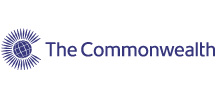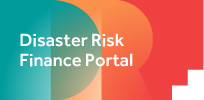Countries Search
Countries
Filters
Filter your search by checking and unchecking the boxes below.
Before or After the disaster?
Own or Transfer the risk?
Instrument type?
Countries
Instruments Available
The African Disaster Risk Financing Programme(ADRiFi) supports eligible countries to access risk transfer services through premium support for parametric weather insurance offered by African Risk Capacity. Between 2019 and 2023, ADRiFi will support premium financing: until the 4th year of participation, a country will receive premium support of up to 50% of the country’s annual premium, and from the 5th year onward, countries will be in a better position to fully finance their premiums from their national budgets and maintain sustained domestic resource allocation for insurance premium. ARC insurance allows for pay-outs being disbursed automatically when pre-defined risk thresholds are exceeded.
AfDB Emergency Liquidity Facility (ELF) is a short-term emergency finance support instrument. This US$1.5 billion facility provides financial support to eligible clients in exceptional cases, including disasters. Proposals for the use of the resources will be considered by the AfDB Board within ten working days.
AfDB Long-term Relief Assistance Operations offer long term nature loans for rehabilitation and reconstruction operations that aim to repair the damage caused by natural or man-made disasters. For instance, repairs and reconstruction of damaged infrastructure and equipment, assistance in the revival of economic activities and social services, rehabilitation or reconstruction of roads, bridges, water and sewerage systems, schools, hospitals, or industrial and agricultural complexes. The focus is to bring economic and social infrastructures back to pre-disaster levels. These operations would also include preparedness activities that enable a country to forestall or prepare itself to better withstand emergency situations.
The emergency relief operations of the AfDB’s Special Relief Fund are grants characterized by the need for prompt remedial actions to save and protect lives, salvage property and minimize the destruction of basic infrastructure. They are of a short-term nature, lasting from a few weeks to a few months.
Emergency funds provided by the African Disaster Risk Financing Programme (ADRiFi), a programme that aims to enhance the resilience and response to climate shocks in African countries.
The Emergency Response Coordination Centre (ERCC) supports a coordinated and quicker response to disasters both inside and outside Europe using resources from the countries participating in the EU Civil Protection Mechanism.
Grants provided to Red Cross/Crescent National Societies (rather than governments) for emergency relief and all activities which meet immediate needs caused by sudden, slow-onset or imminent disasters, including monitoring and evaluation.
Application guidelines:https://media.ifrc.org/ifrc/wp-content/uploads/sites/5/2020/07/20200511_DREF_Guidelines_ONLINE-_OPT_FINAL-1.pdf
Loans provided to Red Cross/Crescent National Societies (rather than governments) for emergency relief and start-up response to sudden, slow-onset or imminent disasters.
Application Guidelines: https://media.ifrc.org/ifrc/wp-content/uploads/sites/5/2020/07/20200511_DREF_Guidelines_ONLINE-_OPT_FINAL-1.pdf
Longer term for serious medium-term balance of payments problems because of structural weaknesses that require time to address, the IMF can assist with the adjustment process under an Extended Fund Facility (EFF).
The Flexible Credit Line (FCL) was designed to meet the demand for crisis-prevention and crisis-mitigation lending for countries with very strong policy frameworks and track records in economic performance. This instrument was created as part of the process of reforming how the IMF lends money to countries that find themselves in a cash crunch, with the idea of tailoring its lending instruments to the diverse needs and circumstances of member countries. While none of these countries have so far drawn down on these lines, the FCL provides a valuable backstop and helps boost market confidence during the period of heightened risks.
The global financial crisis highlighted the need for effective global financial safety nets to help countries cope with adverse shocks. A key objective of recent lending reforms was to complement the traditional crisis resolution role of the IMF with more effective tools for crisis prevention. The Precautionary and Liquidity Line (PLL) is designed to flexibly meet the liquidity needs of member countries with sound economic fundamentals but with some limited remaining vulnerabilities which preclude them from using the Flexible Credit Line (FCL).
The Rapid Financing Instrument (RFI) provides rapid financial assistance to all member countries facing an urgent balance of payments need. The RFI was created as part of a broader reform to make the IMF’s financial support more flexible to address the diverse needs of member countries. The RFI has replaced the IMF’s emergency assistance policy and can be used in a wide range of circumstances.
The new SBA framework has expanded the range of high access precautionary arrangements (HAPAs), a type of insurance facility against very large potential financing needs. Precautionary arrangements are used when countries do not intend to draw on approved amounts, but retain the option to do so should they need it. In an economic crisis, countries often need financing to help them overcome their balance of payments problems. Since its creation in June 1952, the IMF’s Stand-By Arrangement (SBA) has been used time and again by member countries, and it is the IMF’s workhorse lending instrument for emerging and advanced market countries. The SBA was upgraded in 2009 along with the Fund’s broader toolkit to be more flexible and responsive to member countries’ needs. Conditions were streamlined and simplified, and more funds were made available up front. The new framework also enables broader high-access borrowing on a precautionary basis.
JICA’s contingent loan linked to a disaster.
Grants extended under this program aim at mitigating the suffering of victims of all kinds of catastrophes around the world, including in Opec Fund for International Development (OFID) Member Countries. OFID emergency aid is channeled through specialized relief agencies, such as the IFRC, UNHCR, UNOCHA and the WFP.
Start Fund is a multi-donor pool fund managed solely by NGOs for NGOs, with delegated authority from its donors. The fund is designed to disburse rapid emergency funding within 72 hours of an alert. It covers smaller ‘under-the-radar’ emergencies which often received little or no media attention and therefore attract little or no public funding.
Risk-linked security instrument designed to mobilize money in case of a catastrophe such as a hurricane or earthquake. If the bond issuer suffers a loss from a particular pre-defined catastrophe, such as a hurricane or earthquake, their obligation to pay interest and/or repay the principal is either deferred or completely forgiven.
A contingent financing instrument (grant or loan) that provides immediate liquidity following a natural disaster. Funds become available for disbursement after the declaration of a state of emergency due to a natural disaster. Country must have a disaster risk management program in place, which the Bank will monitor on a periodic basis.
GRiF is a multi-donor trust fund (MDTF) managed and implemented by the World Bank, with initial contributions from the governments of Germany and the UK. GRiF provides grants imbedded as part of World Bank projects to pilot and scale up financial solutions that help countries be financial prepared to respond to climate shocks, disasters, and crises. World Bank projects with GRiF funds are already underway in a number of Commonwealth countries: Malawi, Mozambique, Sierra Leone, and Jamaica.

